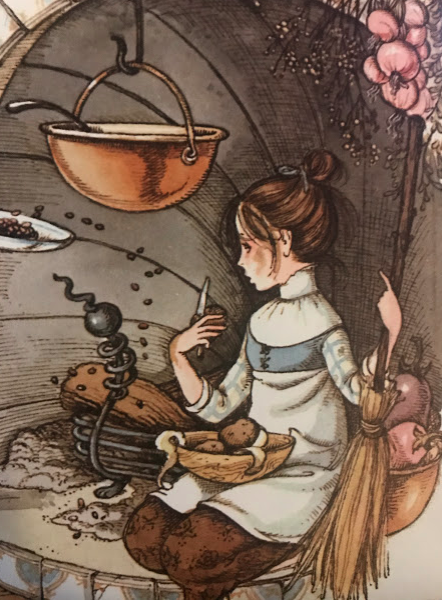
Ashes to ashes, dust to dust
Dust thou art, to dust thou shalt return.
It will all fall down to dust:
Ozymandias’ statue in the desert, the mistress
whose eyes are nothing like the sun– her name
is lost to time rather than immortalized in rhyme.
And in a thousand years, why not also the same
for her poet-lover, and all the Bard’s verses and plays?
If not in a thousand, surely in 10,000– even roses
sung in children’s rhymes, that outlived the plague
will be no more than dust
indistinguishable from great ones:
“I will show you fear in a handful of dust”
Dust and ashes, ashes, we all fall down.
Still, wasn’t the fire warm while it lasted,
beautiful as it danced, even if not for always,
blazing bright before it died into the embers
and dark ashes? As the tale is sometimes told
Cinderella’s loveliness shone through the dust
and ashes where she was banished,
mourning her parents, gone down to the dust.
Rare beauty, her gentle heart broke
somehow without a jagged edge, patient pieces
of hope still smoldered, protected from cold cruelty
by soft ashes banked over them.
Her courage, too, flamed out of the ashes
defying years of lies when she spoke
truth: “I am also a maiden of the land,
the king’s invitation includes me, too,
in this ball for all, if only for one night.”
Claiming her worth, she grasped the fleeting chance
to see the palace, to join the ephemeral dance,
a candle-blaze of waltzing romance.
Not knowing that her life would change,
she wished for a moment, a glimpse, a glance
to glow in memory later, when she returned
again to ashes, cinders of magic extinguished
at midnight. She could not have known love would
find her again, in her humiliated circumstance.
Ashes to ashes, dust to dust,
the priest tells us as Lent begins–
the palms from the triumphal march
were burned, and Jesus wept for Jerusalem,
its temple of stone brought soon again to dust.
He told the city’s daughters not to weep for him,
the green tree, yet I don’t know but that also He
too is now become only dust.
Still, He washed the dust of the road
Off his disciples’ feet before his death.
Dust thou art, to dust we will return, wash off this dust
and is there anything, anything that remains
once the grime and dust are washed away?
Maybe He thought so, the king inviting all
who will come to a feast for everyone,
a burning bush that could give light
and warmth but not itself fall
into ashes. Or maybe, no, ALL is dust,
and dust and ashes, late or soon,
the dust of the road washed from those who are dust
by one who was also living dust (still glowing
as an ember, the memory not yet burnt out)
Dust, yet for a moment it held
such a strange spark and bright shape.
They brought her to Him in the morning, trapped prey
humiliated down to the dust and left
by the other man who wanted, I suppose,
not to die by the temple that particular day.
They asked Jesus what He would say:
shall we stone her for her sin, grind her into dust?
There is a law written about adultery to obey.
She saw Him bend down and write–
not in stone, but with His finger in the dust.
Afterwards, her accusers turned and went away,
each knowing his sin. The Gospel writer doesn’t say
what shapes or letters His fingers traced–
and if Jesus wrote in dust, why should it last or stay?
One doesn’t need every letter to know the shape of the play.
His entire fleeting life among the dust
He wrote love in the dust, inviting all with love
greater than a lifetime of words could convey.
What beauty can shine through dust,
before it is swept away? It’s Ash Wednesday.
If you wish for the chance to be marked
with this King’s sign, His cross, anyone may.
Let me also be the dust he writes in, I pray.
